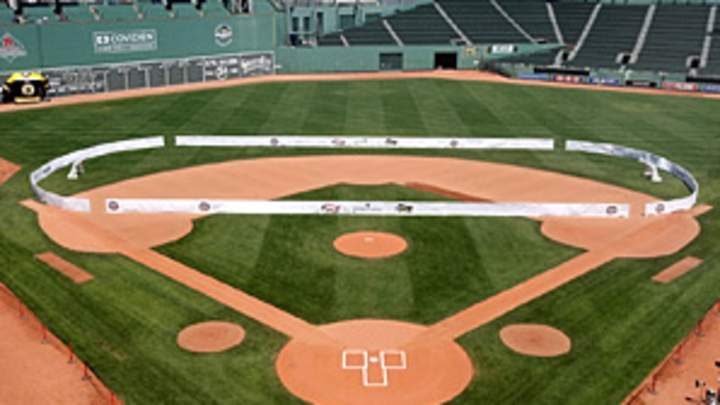NHL's growing college connection


During the hectic pace of the NHL season, it's easy to get lost in the week-to-week doings. It's not a schedule that very often allows one to step back and assess the game of hockey in the overall -- to see the connections between youth hockey, the college game, and the NHL.
Last week, though, I was in Detroit and had a chance to catch up with Central Collegiate Hockey Association Commissioner Tom Anastos, who also holds the post of President of the Hockey Commissioners' Association. I've known him for nearly 20 years, since I got involved in another of his entities, Suburban Hockey, as its Director of Goaltending. I actually got into broadcasting as a stand-in for Anastos, after he passed on serving as the hockey analyst for the Detroit Vipers of the old IHL.
Personal stories aside, suffice it to say that Anastos is a one-man prism when viewing hockey in the United States -- from skills development at the younger ages right through the most skilled players entering the NHL. He's involved in all of it in one form or another. He's behind this season's Frozen Four undertaking at Ford Field in Detroit scheduled for April 2010. Hosting the NCAA men's ice hockey championship outdoors is an extension of the Anastos-led stadium events in 2001 at Michigan State's Spartan Stadium and in 2006 at Green Bay's Lambeau Field where MSU hosted rival Michigan and the Wisconsin Badgers took on Ohio State respectively.
The success of those events led to the NHL hosting outdoor games as well, in Edmonton in 2003, Buffalo in 2008, Chicago in 2009 and Boston on New Years Day 2010 at Fenway Park. The idea of returning hockey to its outdoor roots has become a boon for the NHL, with the Winter Classic serving as a midseason event that garners strong fan support and positive media attention. It's a prime example of a business case bubbling up from the collegiate ranks and making sense at the professional level as well.
Never one to sit still, Anastos and the Hockey Commissioners' Association are unveiling a new version of the Ice Breaker Tournament in October 2010. The St. Louis Sports Commission put on such an impressive Frozen Four in 2007 that the CHA agreed to a two-year deal for the Ice Breaker event. The goal is to have four NCAA teams representing four different conferences open the college season. This will be the fourteenth Ice Breaker, but the first not hosted by an NCAA team. It's an effort to raise the profile of the event specifically and the college game in general.
According to the Sports Council, they hope to launch the hockey season in general; adding a youth tournament that draws teams from all over the world and having the St. Louis Blues open their NHL season as the centerpiece of the event. Youth players would get tickets to the college games and Scottrade Center would host select championship matches during the Sunday finale. It is an aggressive agenda that adds the NCAA component to the youth tournament that ran in conjunction with the 2008 NHL All-Star Game in Atlanta, where the league and the Thrashers Hockey Development Team partnered to host teams from across the Southeast at two age groups.
Then there is USA Hockey's Athlete Development Model, or ADM. It's a set of recommendations and guidelines for rinks and youth hockey associations to help improve participation, skill development and player retention. Ultimately, USA Hockey wants to see more players playing the game and a higher percentage of them advancing to the USHL, NCAA and the NHL. This program is another example and reminder of the NHL backing the game at the grass roots level. Its member franchises have earmarked substantial funds to roll out the ADM message across the country and support the National Development Team.
With so many inter-related, high profile propositions swirling, Anastos and the HCA recently named former NHLPA Executive Director Paul Kelly as their Executive Director. His task is to oversee the business interests of College Hockey Inc. It's a good landing for Kelly, given the negativity surrounding his ouster by the NHLPA. Given Anastos's aggressiveness, Kelly will be busy. But think of the possibilities and opportunity at every level and how they overlap.
Tom Anastos has.
